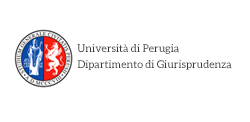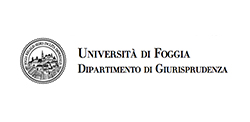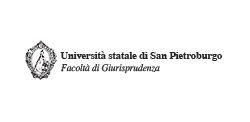Equilibrio tra esigenze di tutela della sicurezza collettiva e tutela delle libertà fondamentali. Nuove tecnologie nella giustizia penale? A.I. (artificial intelligence), Trojan horse (captatore infomatico) e gestione dei dati da parte dell’autorità come case studies
Archivio Penale
© dell'autore 2024
Ricevuto: 29 March 2024
| Accettato: 11 April 2024
| Pubblicato: 17 April 2024
L’intero articolo è disponibile
Riassunto
L’idea di acquisire maggiore consapevolezza delle principali criticità relative al delicato equilibrio tra esigenze di garanzia della sicurezza collettiva e rispetto delle libertà fondamentali ha richiesto la necessità di interfacciarsi con esperienze concrete nella realizzazione di investigazioni innovative (Trojan), nonché sull’impatto delle moderne tecnologie di intelligenza artificiale nel sistema penale. Non è mancata inoltre la possibilità di affrontare le vulnerabilità, legate ad un uso improprio, dell’enorme mole di dati a disposizione degli investigatori nella moderna società digitale. Il sistema delle garanzie elementari dell’ordinamento costituzionale e convenzionale nel contesto europeo dovrebbe garantire un argine ben consolidato alle derive autoritarie da regime poliziesco, ma il pericolo di suggestioni e fascinazioni anacronistiche è sempre dietro l’angolo e, chissà, dato i precedenti nelle politiche di lotta al terrorismo, potrebbero sempre avvolgere le più lodevoli iniziative di contrasto alla criminalità in una vorticosa spirale di violazioni delle libertà fondamentali. La raccolta sistematica del materiale, necessario per l'approfondimento, non ha deluso le aspettative inerenti al difficile compito dello studioso nel razionalizzare componenti molto eterogenee attinenti allo stesso tema, alcune di carattere estremamente tecnico e specialistico, altre, dalla forte componente umanocentrica, estremamente aleatoria e soggetta a variabili profonde, legate al contesto di riferimento. La questione decisiva è ricercare un equilibrio tra le esigenze di tutela della sicurezza collettiva e la necessaria tutela delle libertà fondamentali, costantemente messe in pericolo dalle pressioni emotive della gestione del rischio securitario, legate al potenziale danno a beni giuridici fondamentali quali la vita privata e la sicurezza pubblica. Ordine, soggetto a fenomeni creativi della criminalità organizzata, il più delle volte indefiniti nel tempo e nello spazio, ma anche oggetto di un pronto e attento interesse del legislatore, spesso affascinato da facili soluzioni di breve termine incuranti delle conseguenze di lungo termine nell’architettura degli equilibri democratici dei moderni Stati di diritto.
Belance between the needs of protecting collective security and protection of fundamental freedoms. New technologies in criminal justice? A.I. (artificial intelligence), Trojan Horse (computer sensor) and Data management by the authority as case studios.
The idea of acquiring greater awareness of the main critical issues relating to the delicate balance between the needs of guaranteeing collective security and respect for fundamental freedoms required the need to interface with concrete experiences in the implementation of innovative investigation (trojans), as well as the impact of modern artificial intelligence technologies in the criminal system. There was also no lack of the possibility of addressing the vulnerabilities, linked to improper use, of the enormous amount of data available to investigators from modern digital society. The system of basic guarantees of the constitutional and conventional system in the European context should guarantee a well-established barrier to the authoritarian drifts of the police regime, but the danger of anachronistic suggestions and fascinations is always around the corner and, who knows, given the precedents with loose ends in policies to combat terrorism, could always envelop the most laudable law enforcement initiatives in the fight against crime in a swirling spiral of violations of fundamental freedoms. The systematic collection of the material, necessary for in-depth study, has not disappointed the expectations inherent in the difficult task of the scholar in rationalizing very heterogeneous components pertaining to the same theme, some of an extremely technical and specialized nature, others, by virtue of the strong human-centric component, extremely random and subject to profound variables linked to the reference context. The decisive issue is to seek a balance between the needs for the protection of collective security and the necessary protection of fundamental freedoms, constantly placed in danger by emotional pressures of risk management, linked to the potential damage to fundamental legal goods such as life and public order, subject to creative phenomena of organized crime, most of the time indefinite in time and space, but also the object of a ready and careful interest of the legislator, often fascinated by easy short-term solutions regardless of the consequences of long term in the architecture of the democratic balances of modern states of law.
Percorso di valutazione
Peer reviewed. Certificazione della qualità











